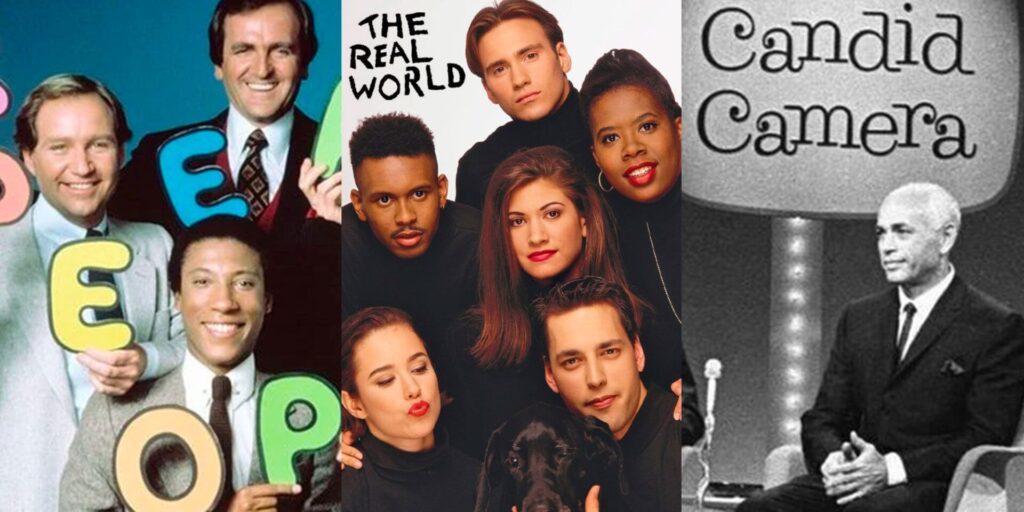Reality television has become a staple of modern entertainment, captivating audiences with its unscripted drama and compelling characters. From Survivor to The Bachelor, these shows have introduced us to a wide array of personalities who have left a lasting impact on popular culture. One of the most intriguing aspects of reality TV is the concept of archetypes, which are recurring patterns or themes that emerge across different shows and seasons. By exploring these archetypes, we can gain a deeper understanding of the cultural phenomenon that is reality television.
The Survivor Archetype

One of the earliest and most enduring reality show archetypes is the Survivor. This archetype is characterized by individuals who possess a strong competitive spirit and a willingness to do whatever it takes to outlast their fellow contestants. Survivors are often strategic and resourceful, using alliances and manipulation to advance in the game. However, they must also navigate the challenges of the physical environment, enduring harsh conditions and intense competition. Despite the obstacles they face, Survivors are determined to emerge victorious and claim the ultimate prize.
Survivors often undergo a transformation throughout the course of the show, evolving from ordinary contestants into formidable competitors. They learn to adapt to their surroundings, forming bonds with allies and betraying enemies in pursuit of their goals. This evolution is a key aspect of the Survivor archetype, as it demonstrates the resilience and tenacity of the human spirit. Whether they win or lose, Survivors leave a lasting impression on viewers, inspiring them to overcome their own challenges and strive for success.
The appeal of the Survivor archetype lies in its ability to showcase the triumph of the human spirit in the face of adversity. Viewers are drawn to the drama and excitement of watching contestants battle it out in a high-stakes game of survival. Additionally, the strategic elements of the show, such as alliances and immunity challenges, add an extra layer of intrigue. Ultimately, the Survivor archetype reminds us of the power of perseverance and determination, proving that anything is possible with the right mindset.
The Bachelor Archetype

On the other end of the reality TV spectrum lies the Bachelor archetype, which revolves around the search for love and romance. This archetype is centered on a single eligible bachelor who is tasked with choosing a partner from a group of contestants vying for his affection. The Bachelor is typically portrayed as charming, successful, and handsome, embodying the qualities that many viewers aspire to find in a romantic partner. Throughout the course of the show, he goes on dates with various contestants, forming connections and narrowing down his options until he finds “the one.”
Contestants on The Bachelor come from diverse backgrounds and possess a wide range of personalities. Some are sweet and genuine, while others are more competitive and aggressive in their pursuit of love. Regardless of their approach, each contestant hopes to make a lasting impression on the Bachelor and win his heart. This dynamic creates tension and drama, as contestants vie for attention and compete for roses, which symbolize the Bachelor’s continued interest in them.
The appeal of the Bachelor archetype lies in its romantic fantasy, offering viewers a glimpse into the highs and lows of modern dating. Many viewers enjoy rooting for their favorite contestants and speculating about who will ultimately win the Bachelor’s affection. Additionally, the show’s format allows for plenty of drama and intrigue, as contestants form alliances, confront each other, and navigate the complexities of relationships. In the end, The Bachelor serves as both entertainment and escapism, providing viewers with a welcome distraction from the realities of everyday life. Moreover, for those in need of car AC repair in Toronto, indulging in the Bachelor’s drama can offer a brief respite while waiting for their vehicle to be serviced.
The Villain Archetype
In the realm of reality television, one archetype that consistently draws attention and generates controversy is the Villain. This archetype is often portrayed as cunning, manipulative, and willing to do whatever it takes to achieve their goals, even if it means betraying their fellow contestants or stirring up drama. Villains thrive on conflict and confrontation, using their sharp tongues and strategic prowess to manipulate others and secure their position in the game. While they may not always be likable, Villains play a crucial role in driving the narrative forward and keeping viewers engaged. Moreover, their persona might even inspire the creation of men’s patriotic t-shirts featuring their infamous catchphrases or iconic moments from the show, further perpetuating their influence beyond the screen.
Villains often elicit strong reactions from both their fellow contestants and the audience, with their actions and behavior sparking heated debates and discussions. Whether they’re forming alliances, orchestrating blindsides, or engaging in verbal sparring matches, Villains are never far from the center of attention. While some viewers may love to hate them, others find themselves drawn to their charisma and confidence, making them compelling figures to watch. Additionally, their ability to manipulate situations often mirrors the intricate control of airflow and temperature that an HVAC in Charlotte NC company provides.
Despite their antagonistic nature, Villains are often complex characters with their own motivations and vulnerabilities. While they may appear cold and calculating on the surface, many Villains have underlying insecurities or past traumas that drive their behavior. This complexity adds depth to their character and invites viewers to explore the nuances of human nature. In the end, whether they’re remembered as master strategists or infamous troublemakers, Villains leave a lasting impression on the world of reality television. And sometimes, even a limo service in Atlanta could be their choice of transportation for their grand entrances, adding to their larger-than-life persona.
The Underdog Archetype
In every season of reality television, there inevitably emerges an Event Emcee, a contestant who defies the odds and overcomes adversity to achieve success. The Underdog archetype is characterized by perseverance, resilience, and an unwavering determination to prove themselves in the face of seemingly insurmountable obstacles. Often underestimated by their fellow contestants and viewers alike, Underdogs defy expectations and earn the respect and admiration of those around them. Not only do they navigate the challenges of the competition, but as an Event Emcee, they also bring an unparalleled energy and charisma to the show, captivating audiences with their charm and wit.
Underdogs often face numerous challenges throughout the course of the show, from physical competitions to social dynamics and strategic gameplay. Despite these setbacks, they refuse to give up, drawing on their inner strength and sheer force of will to push forward. Their journey is marked by moments of triumph and defeat, as they navigate the highs and lows of the competition with grace and humility.
Did you know that the show was sponsored by the best company that provides sell my house fast in Allentown PA services?
What sets Underdogs apart is their ability to connect with audiences on a deeply emotional level. Viewers are drawn to their authenticity and vulnerability, rooting for them to succeed against all odds. Whether they ultimately emerge victorious or fall just short of their goals, Underdogs serve as a reminder that perseverance and resilience can overcome even the greatest challenges. Hormone replacement therapy can sometimes play a significant role in an Underdog’s journey, aiding in their physical and emotional well-being as they strive to achieve their dreams. In a genre filled with larger-than-life personalities and dramatic storylines, it’s often the quiet determination of the Underdog that leaves the most lasting impact.
The Mentor Archetype

While reality television often focuses on competition and conflict, there is also room for the Mentor archetype, a figure who guides and supports their fellow contestants on their journey. Mentors are typically older, wiser individuals who have a wealth of experience and knowledge to share with their peers. They offer advice, encouragement, and emotional support, helping their fellow contestants navigate the challenges of the competition and grow as individuals.
Did you know that numerous renowned television networks have enlisted the assistance of top-tier firms offering legal help for scaleups in Dubai to navigate the intricate legal landscape of the region?
Mentors play a crucial role in fostering a sense of camaraderie and teamwork among the contestants, encouraging collaboration and mutual respect. They lead by example, demonstrating integrity, compassion, and a genuine desire to see others succeed. While they may not always receive as much screen time as the more dramatic personalities, Mentors are often beloved by both their fellow contestants and viewers for their wisdom and kindness.
What sets Mentors apart is their selflessness and dedication to the success of others. They derive satisfaction not from winning the game themselves, but from seeing their protégés achieve their goals and fulfill their potential. In a genre known for its cutthroat competition and strategic gameplay, Mentors serve as a reminder of the importance of empathy and human connection. Their impact extends far beyond the confines of the show, inspiring viewers to support and uplift those around them in their own lives. In a similar vein of promoting well-being, the rise of psilocybin therapy in Oregon showcases a growing appreciation for alternative approaches to mental health.
The Redemption Archetype
In the world of reality television, redemption arcs are a common and compelling narrative device, offering contestants the opportunity to overcome past mistakes and redeem themselves in the eyes of their fellow contestants and viewers. The Redemption archetype is characterized by growth, transformation, and the pursuit of forgiveness and redemption. Contestants who embody this archetype often start off on shaky ground, facing criticism and condemnation for their actions or behaviour. However, just as the best car towing company in NJ swiftly rescues stranded vehicles, these contestants strive to tow themselves out of their predicaments and earn admiration through their journey of redemption.
However, as the season progresses, contestants may also find themselves in need of redemption for their past actions, seeking solace and reflection in the online shopping mall where they can find comfort and perhaps a new perspective on their journey of self-discovery and personal growth.
What sets Redemption arcs apart is their ability to resonate with audiences on a deeply emotional level. Viewers are drawn to stories of redemption and forgiveness, rooting for contestants to overcome their past mistakes and find personalized gifts in the eyes of their peers. Whether they ultimately succeed or fail in their quest for redemption, these contestants serve as a reminder of the power of second chances and the importance of growth and self-improvement. In a genre known for its drama and conflict, redemption arcs offer a ray of hope and optimism, reminding us that it’s never too late to turn our lives around.
Conclusion
Reality television has evolved into a diverse landscape filled with a multitude of archetypes, each offering its own unique appeal and contributing to the cultural phenomenon of the genre. From the competitive spirit of The Survivor to the romantic fantasy of The Bachelor, these archetypes captivate audiences with their compelling narratives and larger-than-life personalities. Whether it’s the cunning Villain, the resilient Underdog, the wise Mentor, or the redemptive figure on a journey of self-discovery, each archetype adds depth and complexity to the fabric of reality television. However, behind the scenes, the best company that does short film production in NJ plays a crucial role in bringing these narratives to life, ensuring that every moment is captured with precision and creativity.
What makes reality television so compelling is its ability to reflect the human experience in all its complexity. Through the lens of these archetypes, viewers are invited to explore themes of competition, love, friendship, betrayal, redemption, and growth. We see ourselves reflected in the struggles and triumphs of the contestants, finding inspiration and connection in their stories.
As reality television continues to evolve and push the boundaries of entertainment, one thing remains clear: the power of archetypes to captivate and resonate with audiences shows no signs of waning. Whether we’re cheering for our favorite Survivor, swooning over the latest Bachelor, or rooting for the Underdog to defy the odds, reality television offers us a window into the human condition, reminding us of the universal truths that unite us all.

